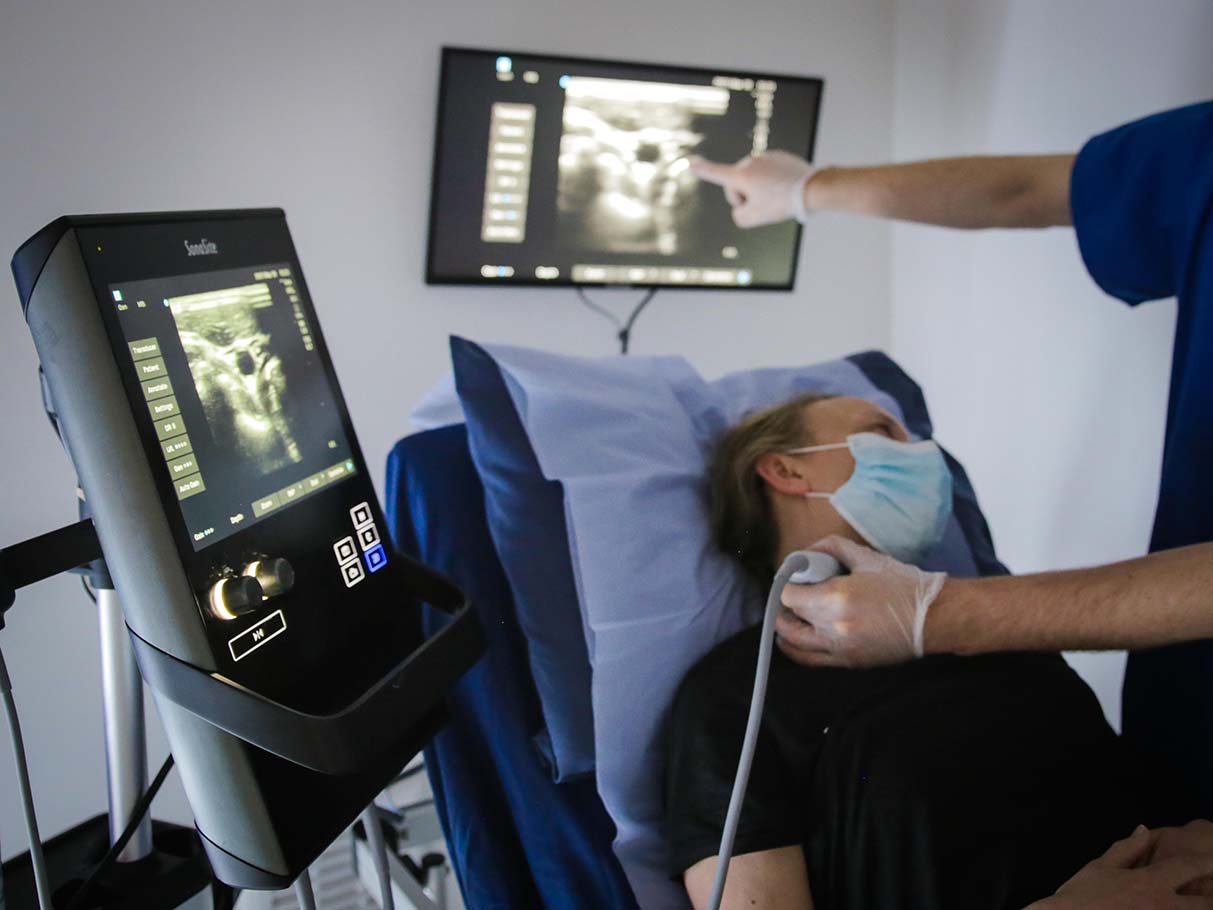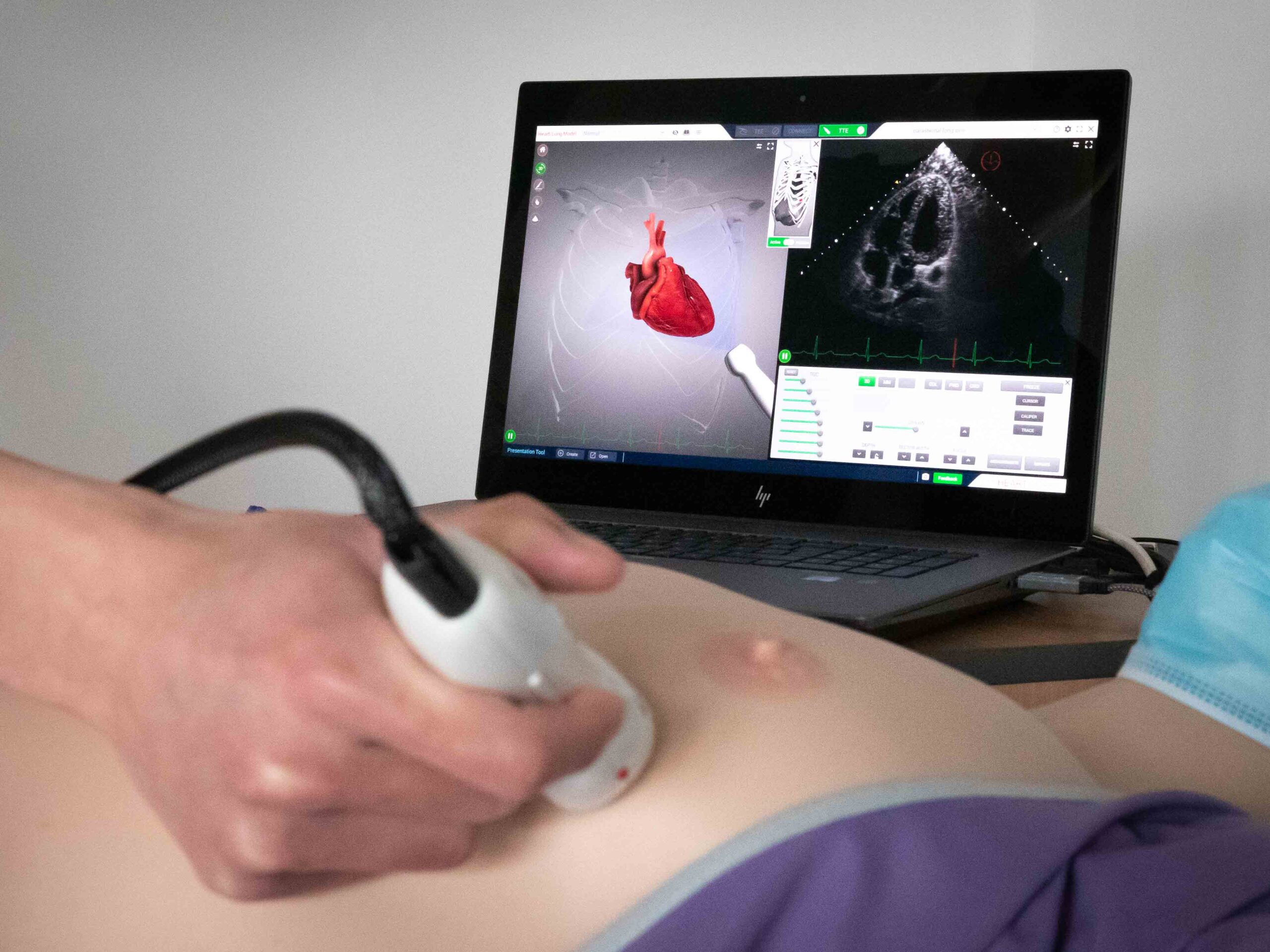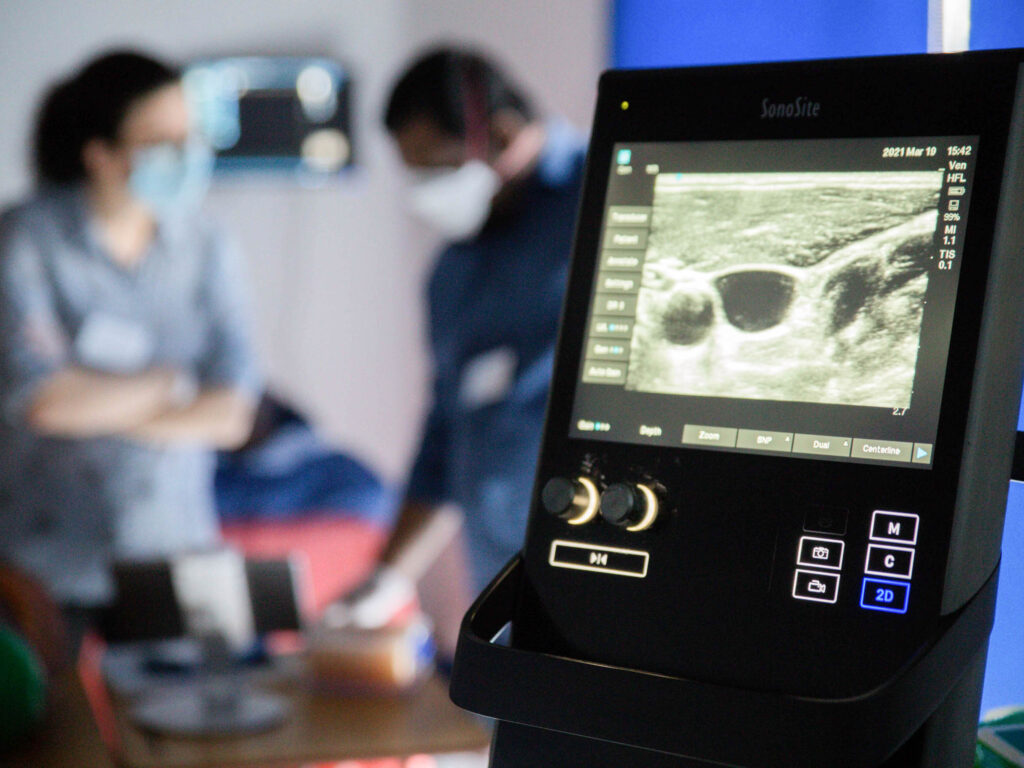Ultrasound Scanning Sessions with DOPS Assessments
Many emergency clinicians are aiming to achieve RCEM Entrustment Scale 4 in point-of-care ultrasound — which means being able to perform independently without supervisor involvement. However it can be difficult to get supervised practice to consolidate skills and it can also be difficult to get someone to confirm that you have achieved an adequate standard for sign off.
To address these challenges, we have designed scanning sessions with DOPS (Direct Observation of Practical Skills) assessments if you need to confirm your level on the RCEM Entrustment Scale. Scroll down to learn more.
You can apply for 3 CPD points for this session.
Dates: 20th March 2026
Time: 9:30 am – 12:30 pm or 1:30 pm – 4:30 pm
Fee: £159
Venue: Terracotta Court (ground floor), 167 Tower Bridge Road, London, SE1 3LN
21 years of teaching EM and PoCUS courses
19 000 clinicians have taken our courses
4.9 out of 5 is our average Google review score
About our Ultrasound Scanning Sessions with DOPS assessment

What is DOPS?
DOPS stands for Direct Observation of Practical Skills. It’s an assessment tool used to evaluate a trainee’s competence in practical procedures, such as ultrasound scanning and interpretation. DOPS is one of the assessments that has replaced the previous triggered assessment model. There are other assessment forms available, such as Case-based Discussions (CbD), Mini Clinical Evaluation Exercises (Mini-CEX), and the Acute Care Assessment Tool (ACAT).

Who are the scanning sessions for?
Our 3-hour ultrasound scanning sessions are ideal for you if you:
- Are an ST5 doctor or above submitting a CESR (Certificate of Eligibility for Specialist Registration) application.
- Already have experience in ultrasound.
- Are working towards the RCEM Entrustment Level 4.
- Have completed the logbook as per RCEM requirements.

How is the assessment conducted?
Our DOPS sessions are based on assessing ultrasound skills rather than providing numbers of cases for logbooks. In these sessions a qualified emergency medicine consultant with extensive PoCUS expertise asks the candidate to undertake a specified ultrasound examination and then gives an entrustment scale score of 2a, 2b, 3 or 4. There are six different DOPS assessments available, matching the requirements of the ultrasound curriculum.
What is the RCEM Entrustment Scale?
This guide recommends what you would need to know and demonstrate per Entrustment Scale stage:
1 – Direct supervisor observation/involvement, able to provide immediate direction/ assistance
2a – Supervisor on the ‘shop-floor’ (e.g. ED, theatres, AMU, ICU), monitoring at regular intervals
2b – Supervisor within hospital for queries, able to provide prompt direction or assistance and trainee knows reliably when to ask for help
3 – Supervisor ‘on call’ from home for queries, able to provide directions via phone and able to attend the bedside if required to provide direct supervision
4 – Would be able to manage with no supervisor involvement (all trainees practice with a consultant taking overall clinical responsibility)
How to achieve Entrustment Scale 4?
According to RCEM guidance, to achieve full competence (Entrustment Scale 4) in performing procedural and diagnostic ultrasound scans, trainees should engage in a gradual, ongoing process to develop, improve, and maintain their skills and knowledge.
Competence is demonstrated through regular work-based assessments such as CbD, Mini-CEX, and DOPS, along with personal reflections. The new competence-based model focuses more on the quality and consistency of your evidence rather than just scan numbers. However, you still need to prepare a scan logbook. You might need fewer or more scans depending on your competency progression.
It’s not always easy to obtain the necessary assessments at work—many hospitals lack qualified trainers, or trainers may not have sufficient time to assess your skills. That’s why we offer our scanning sessions with DOPS assessment conducted by Emergency Medicine Consultants with extensive PoCUS experience.
Subscribe to Bromley Emergency Courses’ weekly email newsletter to keep up with the latest emergency medicine training news and courses
*By proceeding you give your consent to be contacted via email with updates on courses and events by Bromley Emergency Courses. You may unsubscribe from these communications at any time. We will never share your details with 3rd parties and will only use your email to send you information about our upcoming courses and other offers.





